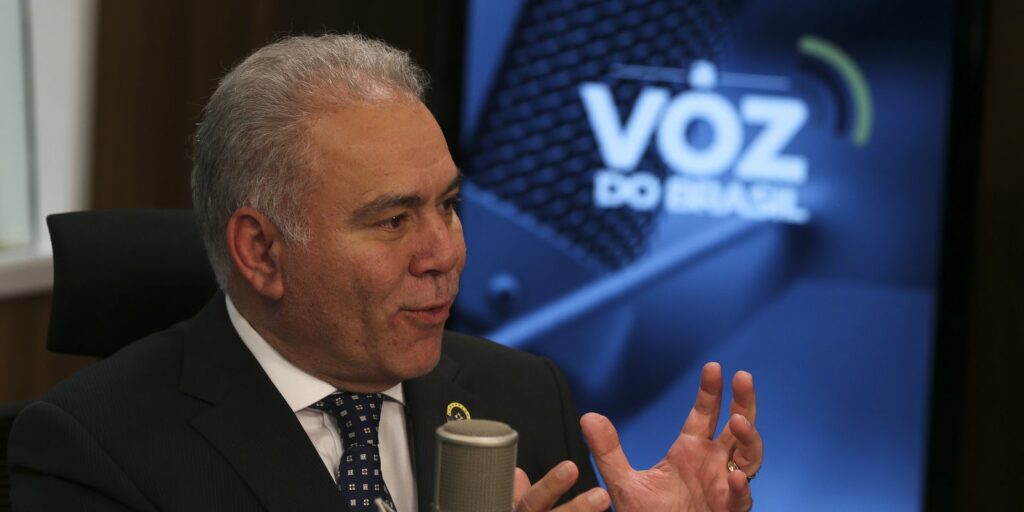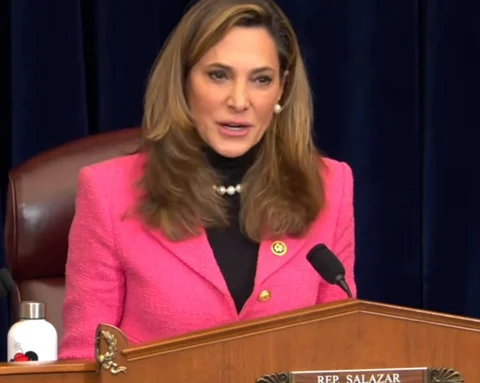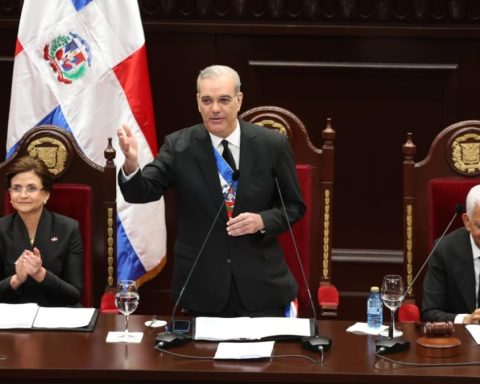Among many characteristics, diplomacy is the art of expressing annoyance politely and understandingly. That is the tone that today characterizes relations around the project to modernize the Association Agreement between the European Union and Chile, which has been going on for several months without any apparent movement in the Foreign Ministry. While it is expressed through official channels that the delay of the Government of President Gabriel Boric to seal the agreement is understandable, when several points that the administration of former President Piñera left ready are still under review, the truth is that such understanding -sources assure- denotes a clear discomfort at the slowness with which the Chilean Executive has conducted the negotiations. The discomfort reaches such a point that they assure – diplomatically – that the patience of the European Union would last until November, a deadline that they hope coincides with the 20 years of the original treaty.
On September 5, when Chile had just received the results of the exit plebiscite, the European Union (EU), through its spokesman, Peter Stano, published a statement where he called to accelerate the closing of the negotiations for the modernization of the Association Agreement with Chile.
It states in its last paragraph: “Furthermore, the EU reiterates its willingness to conclude the modernization of the EU-Chile Association Agreement, which will pave the way to further deepen our extensive cooperation in areas such as multilateralism, democracy, human rights, gender equality and climate action, inclusive and sustainable development and new business opportunities”.
According to analysts, a diplomatic pressure to close the deal at once.
“Indeed, the European Union made a conceptual statement about what had happened in Chile and took advantage of emphasizing the need to call for the conclusion of the EU Modernization Treaty,” commented international analyst Pablo Cabrera in The Counter at La Clave.
A clear sign that time is running out and that the ball is now located in Chilean territory. While from the export union, hundreds of SMEs are waiting for definitions that would give employment to thousands of Chileans.
As there are no major definitions so far, sources familiar with the negotiations to seal the agreement point to several factors as part of the causes of the delay. It is pointed out that the “but” is in the position of limiting the actions of foreign companies, as well as an intransigent position of Carlos Figueroa, the second floor international adviser, who would be contrary to certain aspects of the treaty. Nor is it a secret that the undersecretary for International Economic Relations, José Miguel Ahumada, does not agree with several of the clauses of the agreement with the EU, but that he has been giving in and approaching the negotiations in pursuit of a government position. In fact, these days the Foreign Ministry’s negotiating teams participate in virtual meetings with their European peers. Bilateral meetings that will be repeated during the first week of October, when the delegation from Brussels lands in Santiago.
history of a deal
The EU – made up of 27 countries and with a market of 445 million people – is Chile’s third largest trading partner and the treaty with it began to take shape in June 1996, when a Cooperation Framework Agreement was signed that laid the foundations for its development and discussion. Finally, the treaty was signed on November 18, 2002, including three pillars: political dialogue, cooperation and trade. And it fully entered into force on March 1, 2005, being the EU’s first with a South American country, along with becoming a model for agreements with other nations.
Since then, bilateral exchange has diversified and doubled. Statistics indicate that 80% of imports to Chile are intermediate and capital goods, and almost 40% of the companies that export to the EU are SMEs.
Within the framework of the VI Chile-European Union Association Council, in April 2015, during the second Bachelet government, the parties discussed the modernization of the agreement. The idea was to advance on issues of digitization, modernization of the State, cybersecurity, climate change, sustainable development, gender equality, human rights, sustainable development, SMEs, among other areas that were not considered 20 years ago. In 2017, in Brussels, the negotiations were launched. The European Council published the directives for the negotiation of the new modernized Association Agreement on January 22, 2018 and, in February of the same year, the European Commission published 18 initial textual proposals that established its position in specific areas of the negotiation. Since then, bilateral meetings have been held – a pandemic involved – until the tenth round of negotiations, which was held virtually on May 12, 2021. These negotiations were considered to be over on November 15, 2021. Verbal notes were exchanged, such as it is the tonic in diplomacy to confirm that there was an agreement “at a technical level” between both parties.
Although in areas of diplomatic negotiation there is talk that “nothing is agreed until everything is agreed”, points out a specialist.
The Turquoise Review
As the “technical closure” was carried out at the end of the government administration of Sebastián Piñera, it is up to President Gabriel Boric and the current Congress to sign the treaty. But, once the new government took office, a process of reviewing the text from the point of view of its foreign policy program began. In that sense, there are clauses that could already be discussed since April. In May, a negotiating team arrived from Brussels to talk with the Chilean Foreign Ministry. Afterwards, virtual meetings have continued, especially in the commercial field. And these days they are discussing issues that had been left, by mutual agreement, for after the exit plebiscite.
For various observers, both in Chile and abroad they have noticed that the process has been long and slow. In the EU they have been “very understanding” because it is considered logical that an incoming government wants to confirm and read the text that was closed in a previous one, but it is a very different thing to want to start from scratch, since it is understood that the Conversations are held with the State and not only with governments, as stated by the High Representative of the EU for Foreign Affairs and Security Policy and Vice President of the European Commission, Josep Borrell, who visited Chile last April, when he said that “I understand that the new Government needs time to study well what the agreement reached by the previous Government is. I hope that your reconsideration does not mean reopening the negotiations, but rather a better understanding of the terms of the agreement.”.
These words were seen as a budding suspicion that the current administration may be unaware of the progress achieved with the Piñera government. And this concern -they point out- would not be trivial, because any extra delay that implies reopening the negotiations, in fact would have a huge impact, since, as this 2023 the European Parliament is renewed, if the process is not concluded before that date, the modernization project could be postponed for several years. Those who had full knowledge of Borrell’s visit to Chile say that the High Representative returned to Europe very upset, feeling that he had wasted his time and the trip.
the capstones
The professor and researcher at the Institute of Development Studies of the University of Sussex in England, professor at the Institute of International Studies of the U. de Chile and former assistant general secretary of the United Nations Conference on Trade and Development, Carlos Fortín, explains that the Agreement has some rules that are related to the rules of the World Trade Organization (WTO), very difficult to modify because it brings together 192 countries and the quorums are very high. And that there Chile has a point in favor to take the time.
In the Chilean case, there are two specific ones that are new in terms of investment: “The first prohibits a foreign investor from transferring technology to national producers and/or companies. In other words, governments do not have the right to require investors to leave their technology in the country. The other rule is about preferential prices: the country cannot establish different prices for international trade tending to benefit a product to possess it in the international market. And in the case of Chile, it is especially important, because lithium is going to need this type of policy.” These two points have stopped the agreement, explains Fortín.
The president of the Foreign Relations Committee of the Senate, Jaime Quintana, agrees with him: “It is the issues of innovation and preferential prices for certain products that remain to be overcome. Yesterday I spoke with the EU ambassador in Chile, and with any European country that one speaks to, this is a very recurring theme, because Chile is losing positions in international trade, particularly in Europe where there is a significant number of investments and, also, it is the destination of many of our products. We believe that in this we must move with the greatest certainty and we have discussed it with Undersecretary Ahumada, and what he has told us is that they are increasingly limited and closer to closing. I think we have to set deadlines, this cannot go beyond end of the year. It is a unanimous position of the RR.EE Commission”.
And he adds that much has been said that the treaty was closed, but it was not completely so. “France had pending issues because they had an election ad portas when the previous government ended and, therefore, that Parliament had to pronounce itself with its new legislature. Then came our change of government and then the plebiscite. But the important thing is that it has already been resumed. Therefore, every day there are fewer reasons to continue delaying the approval of this agreement”, he emphasizes.
For Fortín, a way out could be to establish exceptions for some products in the case of preferential prices. “Consider lithium being an exception. Or think of intermediate possibilities. It is not that Chile has decided to boycott the negotiations, what happens is that it has two points that seem particularly important to me, because they limit the expansion of new markets and technological development. I am sure that it will have to be resolved by consensus, because the Europeans are very important partners and the treaty is very progressive and relevant for Chile”.
It should be noted that reopening the negotiation is complicated for the EU, because it represents 27 countries of the Union and the European Parliament. For this reason, a source indicates that they can adjust certain points, but the most important thing is to avoid reopening everything. The reasons have to do with the fact that there are “adjustments that are more complicated and can break the balance that was reached”. They assure that the patience of the Europeans does not exceed November. “Hopefully it can coincide when the 20 years of the original treaty are completed “.
The counter He asked the Foreign Ministry for interviews and statements on several occasions, without receiving a response. And from the office of the International Advisor to the Presidency, Carlos Figueroa, they replied that it was an issue to be discussed with the Ministry of Foreign Affairs.


















